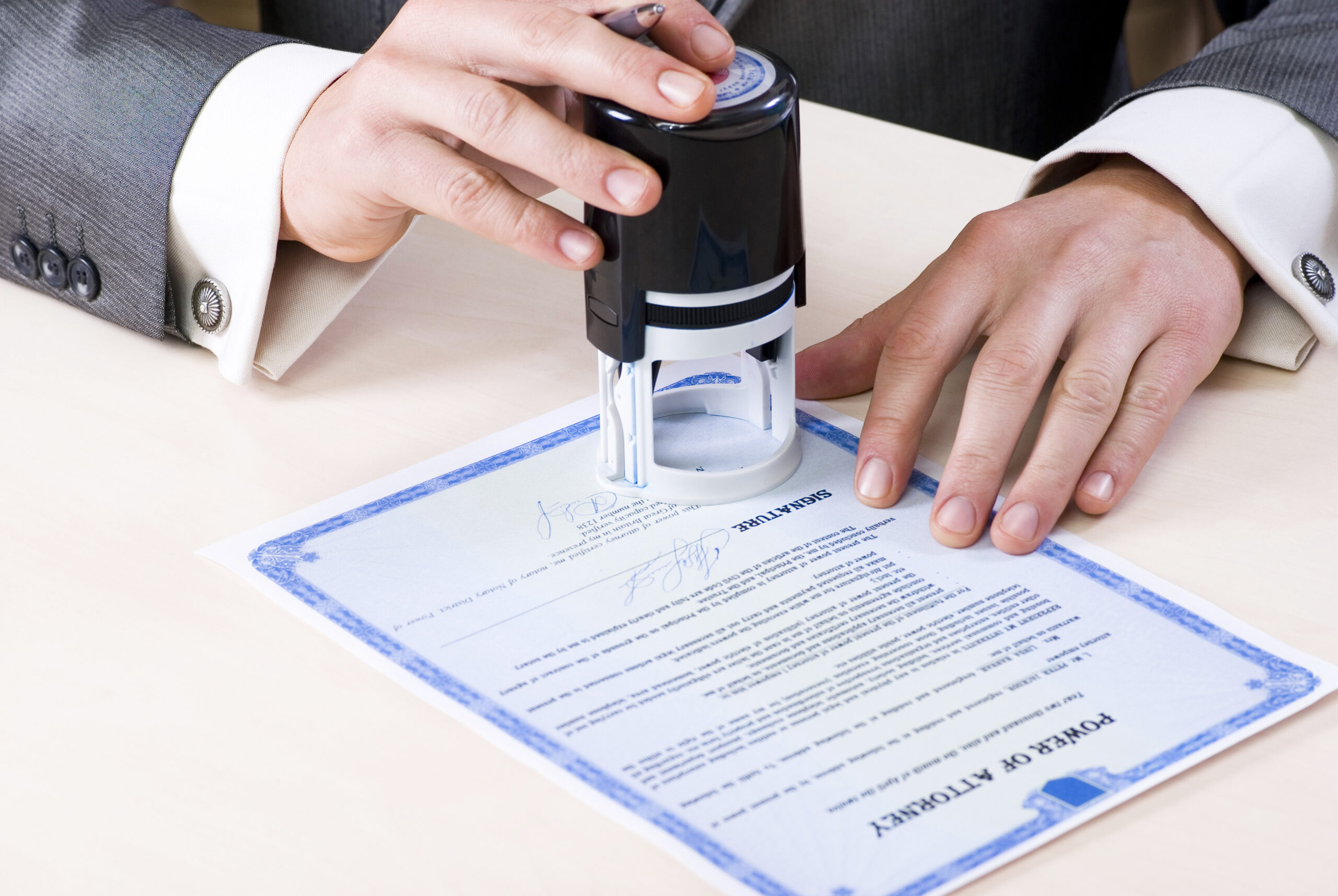Owing to the busy lives of human beings, it is a vital need for humans to depend on others for getting their things done. Thus, the power of attorney is playing a very imperative role in today’s contractual agreements & business matters. To understand the process of revocation of power of attorney, its fundamental concepts need to be addressed.
WHAT IS POWER OF ATTORNEY?
Black’s dictionary describes power of attorney (POA) as “an instrument by which a person is authorized to act as an agent of the granting.” In other words, the power of attorney can be described as a document of agency whereby the principal appoints an agent to do and execute certain acts or deeds on his behalf. Indian stamps Act defines it as “any instrument empowering any specified person to act for & in the name of the person executing it.” It has to be noted that power of attorney is an authority given by a written formal instrument whereby one person herein referred to as donor or principle authorizes the other person i.e. attorney or agent to act on his (principle) behalf. There is no provision that the attorney needs to be a lawyer to hold power of attorney, he/she can be any person.
In most of the cases, the instrument of POA is granted where a person is ill or residing in another city or any other foreign country. For people who reside out of India & wish to grant POA to his/her agent needs to get it notarized by public notary & stamped by the Indian Consulate/High Commission or from Foreign & Common Wealth Office.
Even though there is a specific Act which pertaining to POA i.e. Power of Attorney Act 1882 still the basic principles of these documents are governed by the Indian Contract Act 1872, under the laws of agency, mentioned in section 182 of Indian Contract Act. There are 2 types of power of attorney namely General power of attorney & Specific power of attorney.
While General power of attorney is the POW of the normal course, on the other hand, Specific power of attorney is only for a specific one-time financial/banking transaction.
WHEN CAN POWER OF ATTORNEY BE REVOKED?
Most power of attorney documents has a duration clause envisaged in them. POAs are generally drafted for a specific period or a specific transaction for which the principle is indisposed to conduct. In such situations, once the period when POA is in force is over, or the transaction for which a specific POA was signed comes to an end. Then the attorney’s power also comes to an end.
In some cases where there is no specific period/transaction the POA can terminate when-:
- Death of principal/agent (valid unless the POA was of a durable nature i.e. when POA stays in effect if one become incapacitated & unable to handle matters on his own)
- Removal of POA document is issued.
- The act for which POA was constituted has come to an end.
- Mutual agreement between the principle & attorney.
- The right under POA is renounced by the attorney/agent himself.
Section 201 of the Indian Contract Act, 1872 provides certain conditions for revocation which includes unsoundness of mind, insolvency of the principal/agent, or when the agent himself wants to revoke the POA.
The position in our country is the same as that of England in this regard i.e. POA is automatically terminated if one of the parties to the instrument dies or becomes insane, or the principle becomes bankrupt or any specific condition in which instrument is breached.
PROCESS OF REVOCATION
As stated before, unless it is a durable POA death & incompetence of the principal can revoke the existing POA. In case of durable POA, a different set of documents should be issued.
The most commonly practiced form of revoking/canceling the POA is drafting another legal document called Revocation of Power of Attorney. This new document is a legal notice which pledges that whatever powers were bestowed upon the previous attorney stands canceled. It is necessary that the revocation should be a written document. It is also imperative to follow the steps mentioned below so that in near future your revoked attorney cannot carry out any transaction on your behalf.
There are 5 procedural steps for revocation of the POA, they are-:
- Drafting a deed for POA revocation.
- Notarise the revocation deed similarly to how the instrument of the agreement was notarised.
- Send a copy to the attorney/agent, bank. It very important for the attorney to receive the revocation letter. ( preferably by registered post)
- Send a copy to the office where POA was registered or where the attorney may have acted on your behalf.
- Preserve copies for future correspondence.
- The person who is executing the deed should get it published in 2 regional, 2 local & 2 English newspapers.
The principle/ grantor are under no obligation to provide any explanation as to why he/she chose to revoke the powers.
There are certain POA’s which are irrevocable in other words, ‘such power of attorney is irrevocable.’ In these cases, it is a well-settled rule that mere fact of mentioning of POA to be irrevocable in terms of POA shall not affect it to be irrevocable in itself. The revocation of such POA shall be done according to the rules & procedures established by the law of land.
There are times when the instrument is not registered or notarized, in such cases, the unregistered deed should be notarised & duly stamped by the competent authorities first, & then other similar steps should be followed as in case of the previously registered deed.
AUTHORITIES TO BE NOTIFIED ABOUT REVOCATION
Beneficiaries, trusts, banks, insurance companies, NBFC’s, company business enterprises, any other person who can be affected directly or indirectly by way of such revocation of POA.
EXCEPTIONS TO REVOCATION
There are certain situations where POA cannot be revoked.
- When the attorney of such POA has an interest in the subject matter of the instrument.
In this scenario, when an attorney has a certain interest in the subject matter of the instrument, the principal needs to have the consent of the POA holder i.e. attorney for him/herself to revoke such an instrument. It can also be said that in such condition consent of agent is mandatory.
2. Where the agent has partly exercised the act for which power of attorney was granted.
Section 202 of the Indian Contract Act, 1872 states that -:
“Where the agent has himself an interest in the property which forms the subject matter of the agency, the agency cannot, in the absence of an expressed contract, be terminated to the prejudice of such interest.”
Therefore, such a POA is not subject to revocation.
CONCLUSION
From the above text, it can be understood that a power of attorney can be revoked & there are certain guidelines to be followed for the same. Conceptually the revocation of power of attorney has been effective in the enforcement of contractual obligations.




Thanks so much for the post.Really thank you! Great.
It’s good